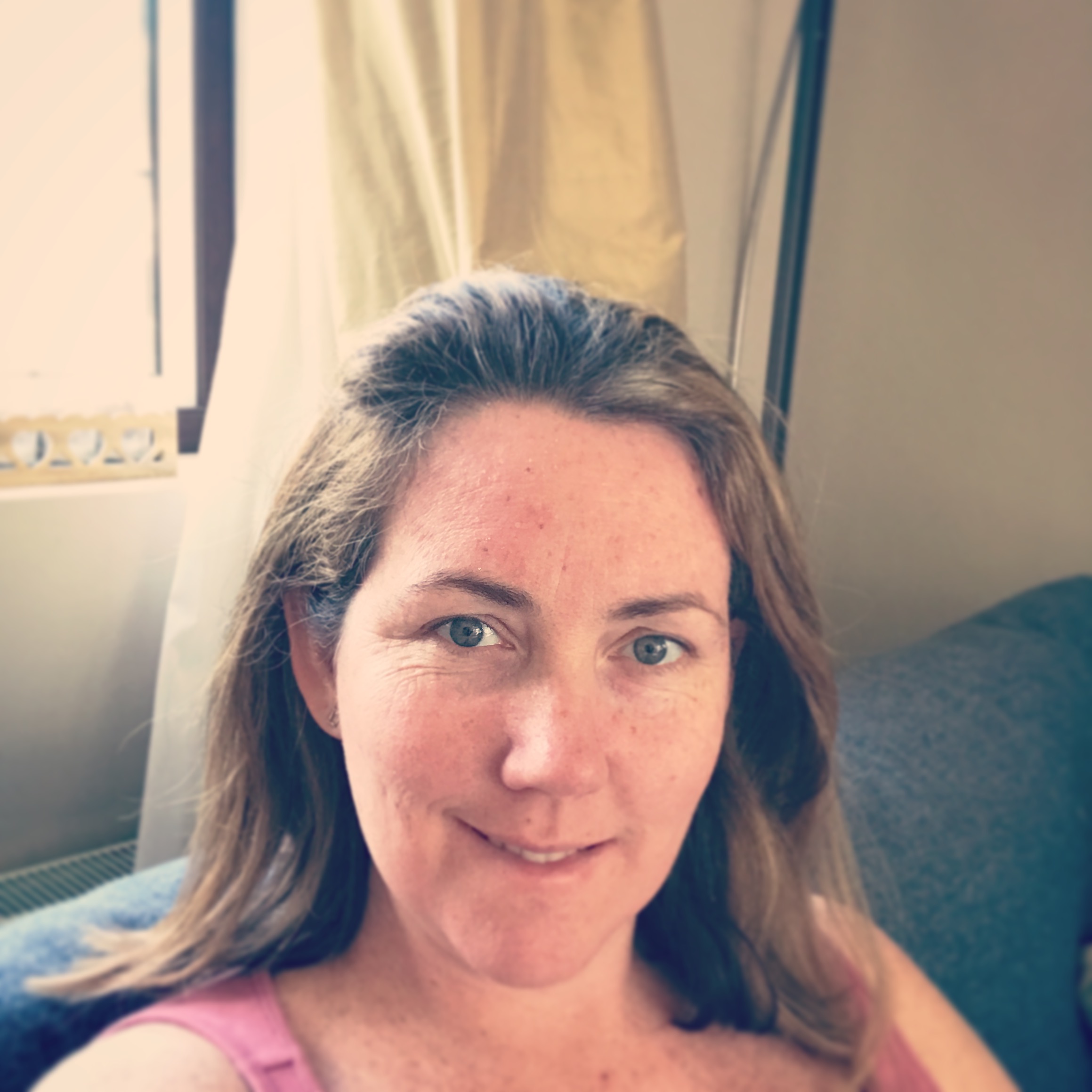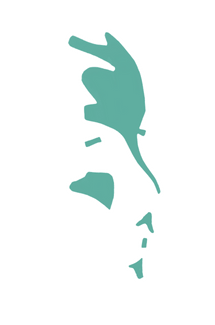As a girl, I believed that I was destined for something special but as I grew up I struggled to fulfil the potential that I knew I had. My autism diagnosis (as an adult) helped me realise that I'd been trying to be someone that I wasn’t, and helped to shift my perceptions of myself. This has empowered me to try a new way of living and working and has enabled me to achieve what I thought was beyond my grasp.
My self-belief that I was destined for something special was the gift my father gave me at the age of 6. He drowned, saving me from a similar fate. He literally held me up so I could breathe until we were rescued. My life was destined to be special, as that meant that his life was not sacrificed in vain.
At 13, I grew up. It was the day that my mum had a mental breakdown. We had to move after being evicted, and the stress of our financial and family situation was more than she could cope with. With no family to rely on, it was up to me to get my mum to the hospital, my 9 yo brother to school and our belongings packed up. The only thing I needed was a truck. Thanks to the SPCA, who got more than they bargained for when they came to collect our animals, I got one and moved us into our 2 rooms in shared accomodation. I remember sitting on the back of the open truck, surrounded by the boxes, as we drove past my school and thinking about how different my day was from everyone else who had made it in.
There was no time for “can I do this” as I unpacked the boxes and attempted to create a comfortable place for my mum to return home to. I was a survivor and my family needed me. It was this spirit that got me through my daily walk to/ from school each day. We didn’t have the money for my brother and I to both take the bus, so I walked the 90+ minute journey twice each day. Not even shin splints stopped me from making it to school each day.
It was this same spirit that kept me going as a young carer. As my mum battled with undiagnosed bipolar mood disorder, it often fell on me to ensure that my brother and I were taken care of. Those were some of the most challenging and confusing times, as my Mother’s behaviours became increasingly erratic. There were good moments, but there were many difficult moments that pushed our family to its limits. I struggled to understand her behaviour and for a long time, it tore us apart. As the years went by I was often torn between disappointment & hope, anger & guilt, the desire to get away & my loyalty to my family.
Through it all, I was determined to make the most of my life. I excelled in lessons at school - eventually finishing in the top 10 of my year. The fact that I didn’t have the financial means to go onto university didn’t stop me either. It took me two years to find a way, but I managed to obtain partial funding from my Dad’s previous employer and had the self-belief that I would find a way to self-fund the rest.
For four years I worked (up to 3 jobs at a time) to pay for my accommodation and fees, made items to sell at craft markets, and sold myself as a tutor to fellow students who were struggling with the challenge of learning to code for our final year project. Not only did I finish having paid off my fees, I graduated in the top 2% of my class.
I couldn't find a graduate job, despite my academic success, so I left S.A. and headed off to the U.K. determined to become a software programmer. Within hours of landing, I had a job as an administrative assistant, where I spent most of my time looking for things to do. Several months later I had automated their client invoicing system, and finally had the experience to secure the job I wanted. I was to become a trainee programmer for a financial services software firm.
That was 17 years ago, and I went on to become a business analyst, project manager and programme manager. My mother was diagnosed with bipolar mood disorder and we found a new sense of understanding with each other. I am proud of what I have achieved, but there was a time when I doubted that I would make it and my world almost came crashing down around me.
I had lost my confidence and self-belief. I struggled in team situations and didn't gel with many of my peers. At first, I ignored it and put my head down as I focused on getting on with the job. It worked for a while and I managed to become a team lead, then it started to impact my ability to progress. I unintentionally upset people and was often called out for being abrasive, uncooperative, insensitive and aloof. As a manager, I struggled to get the best from my team and keep them motivated. I wanted it to be different, but I struggled to change. I thought I needed to be more sociable to succeed. I had social moments and could be very engaging in short bursts but the energy required to achieve this was exhausting, and it was almost impossible in stressful situations.
Growing up I didn't have much need to be sociable, and so it had never been an issue for me. Whilst the kids played on the fields at primary school, I was often in the library reading Nancy Drew. At high school I was an outsider, often bullied, and was never part of the "social scene". At university, I was more focused on making a living, than making the most of the student life experience. I did have friends and social times, but this was limited to a select few that I had connected with and the friendships were often short-lived. For me, this is different from being sociable and maintaining a social front for extended periods of time. When under pressure or stressed, my social manners disappear completely and I find groups of people I don't know overwhelming.
With increasing social expectations at work, I was determined to address my social shortcomings. It took me a while to figure out the people basics (more on this in a future post), but other lessons were harder to learn. I did what I know best - I took to the books, made checklists, and tried out many different strategies. Unfortunately, the end result was always the same and I kept making the same mistakes. This eventually led to critical anxiety, a severe case of self-doubt, and my client asking me to be removed from the project I was working on.
Then at my lowest, as I was feared for my job, my son was diagnosed with autism. He had just started school, was struggling to fit in, and the teachers were not able to cope with his challenging behaviour which seemed to come out of nowhere. There was no time to think about my own life. I was fighting to get him diagnosed, to get the right support, and to keep him in school. Unfortunately, the first school wasn't prepared to understand his needs or collaborate with us and he was "asked" to leave. The second school only lasted a few months, but we finally found a school with the right insights and support to help him find his way again.
There was much to learn in the years that followed. The criticality of getting the right support, the challenges of finding the right educational placement, the behavioural traits commonly associated with autism, how small adjustments can make a huge difference to everyday life, and most importantly the many positives of being autistic.
That was not all that I learnt. I recognised many of my son's traits in myself and discovered that there were other women like me. Adults who were often perceived as being abrasive or difficult, and had struggled through life feeling like they were different and didn't belong. 24 July 2017 was a pivotal day for me, it was the day that I received my autism diagnosis. It was the day that I gained insights into the way my brain processed information and set me on a journey to view my life through a new lens. I am autistic.
It helped me understand why I had been able to overcome so many difficult challenges in my life but was almost crippled with anxiety as I struggled to navigate in a world of increased social expectations. I didn't need to change who I was and become more sociable at work. I was trying to be someone that I wasn’t meant to be - a bumble bee trying to be a butterfly.
I needed to find my own way to succeed. I needed to find a way that allowed me to be myself. I needed to truly understand who I was and the impact it had on others, I needed others to understand me, and together we needed to find new ways of working.
I am learning to say "This is me, this is what I need, and this is what I want". I am learning there is power in being me, and speaking out. I am amazing and have so much to offer if I am supported in the right way. This is something that I can say proudly and it has resulted in a radical change for me at work. I am now building a community of my own. A group of Neurodivergent people who, like me, have struggled because they think differently. Together we are celebrating our diversity of thought, and seeking to bring about a change in the way that we work.
Finally, I know the special destiny that I was due to step into and I am on a mission, with the same determination that has got me through life. I'm on a mission to find more Neurodivergent people (and allies) who think differently, to work with me and bring about a change in the world by standing up to say this is me, and this is how I work - this is Me.Decoded.
Are you in? If you wish to join me in the pursuit of neurodiversity by giving voice to your story, please get in touch


